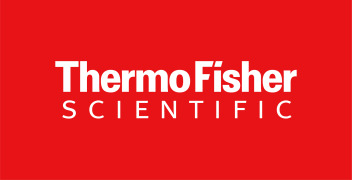On Track at CPHI Milan: Thermo Fisher Scientific Track Sponsor interview
.png)
With CPHI Milan just around the corner, we sat down with some of the sponsors for this year’s conference tracks to discuss the most pressing topics in pharma.
Anil Kane, PhD, MBA, Executive Director, Global Head of Technical & Scientific Affairs at Thermo Fisher Scientific, spoke with us about this year’s Manufacturing 5.0 track, the core tenants of Industry 5.0 and how it relates to biopharma, and what we can expect to see from this new revolution in the pharmaceutical industry and beyond.
1. What are the hallmarks of Pharma/Manufacturing 5.0?
Pharma and manufacturing 5.0 is transforming drug development and production by ensuring and leveraging advanced, human-centred technologies. This combination should not only help the industry but also puts patients first. Incorporating technologies like artificial intelligence and machine learning means more tailored therapies and faster, more efficient production processes. This can bring a stronger focus towards patient-centric solutions by combining the strengths of both human creativity and machine efficiency. Pharma 5.0 has the potential to drive innovation while maintaining a deep commitment to meeting individual patient needs.
2. How does Manufacturing 5.0 build upon current tenants of Industry 4.0?
Industry 5.0 represents a significant shift in how manufacturing processes are viewed and executed. Industry 4.0 has been around for a while, and it revolutionised production with advanced digital technology, automation, connectivity, and more. Industry 5.0 takes the industry further by reintroducing the human element into these processes. It emphasises the partnership between humans and technologies such as artificial intelligence, leading to a more personalised and value-driven approach to manufacturing.
3. Why are we now seeing a shift towards a new manufacturing revolution?
The landscape for bringing new pharmaceutical products to market is evolving with the growing complexity of novel therapies. Global supply chain uncertainties, increased competition, intensified regulatory scrutiny, and compressed timelines have forced pharma companies to search for new ways of working, including the integration of augmented or virtual reality technology for more efficient training, and the widespread adoption of continuous manufacturing to guarantee product safety and quality without sacrificing speed-to-market. Additionally, major trends such as personalised medicine and the rise of artificial intelligence are reshaping the market. This requires increased customisation and flexibility for pharma companies to remain competitive.
4. How do events like CPHI help highlight these leaps in pharmaceutical innovation?
Events like CPHI allow experts and executives in the pharmaceutical industry to come together from all branches from all over the world and collaborate on advancements and trends. CPHI gives an opportunity for the attendees to learn from other organisations who may have insights, experience, and share their knowledge and any applications about a certain market, or overcoming specific challenges. This collaboration is invaluable for advancing our industry and ensuring that medicines get to patients as quickly as possible.
5. What does it mean for Thermo Fisher Scientific to sponsor the Manufacturing 5.0 track at this year’s CPHI Milan?
The Manufacturing 5.0 track will explore the role of the Contract Development and Manufacturing Organization (CDMO) in pharmaceutical manufacturing and the way technological advancement is shaping industry trends. As a trusted CDMO partner, it’s important to us that there’s an opportunity to discuss such topics that have a great impact on the industry, such as regulatory compliance, quality control, the impact of artificial intelligence and machine learning, flow chemistry, continuous manufacturing, data analytics, digital twins, and more. Attendees will have the opportunity to attend various panels and presentations at this event on leveraging artificial intelligence for pharmaceutical development and manufacturing, and the impacts of technological advancement on patient care, as well as pharma manufacturing in emerging markets and economies.
6. What are you most looking forward to at CPHI Milan?
Personally, and as a company, we are looking forward to networking, as always. This is one of the industry’s biggest events and a great opportunity for industry representatives to come together. We are looking forward to strengthening existing contacts and relationships and building new ones. We’re also keen to learn about new topics and advancements from the companies that are represented at this event. Of course, we are excited to learn how organisations are applying and leveraging artificial intelligence to advance their drug development processes. It’s an exciting time for us to understand the technological advancements in the industry that impact everybody in healthcare.
7. Where do you hope to see Manufacturing 5.0 develop in the next few years?
Over the next few years, it is our hope that Manufacturing 5.0 will continue to emphasise the importance of patients as the priority of the pharmaceutical manufacturing sector. We also anticipate more approvals for life-saving therapies for difficult-to-treat diseases, like cancers and rare diseases. We believe this will revolutionise the research and development process and bring effective medications to treat these diseases to market.

Related News
-
News US FDA adds haemodialysis bloodlines to devices shortage list
On March 14, 2025, the US FDA published an open letter to healthcare providers citing continuing supply disruptions of haemodialysis bloodlines, an essential component of dialysis machines. -
News Women in Pharma: Manufacturing personal and team success
Our monthly Women in Pharma series highlights the influential lives and works of impactful women working across the pharmaceutical industry, and how the industry can work towards making the healthcare industry and workplace more equitable and inclusive... -
News Pfizer may shift production back to US under Trump pharma tariffs
At the 45th TD Cowen annual healthcare conference in Boston, USA, Pfizer CEO Albert Bourla outlined the potential for Pfizer to shift its overseas drug manufacturing back to the US as pharmaceutical industry players weigh their options against Presiden... -
News Experimental drug for managing aortic valve stenosis shows promise
The new small molecule drug ataciguat is garnering attention for its potential to manage aortic valve stenosis, which may prevent the need for surgery and significantly improve patient experience. -
News Women in Pharma: Connecting accessible pharma packaging to patients – a Pharmapack Special
Throughout our Women in Pharma series, we aim to highlight how CPHI events encourage discussions around diversity, equity, and inclusion initiatives in the pharmaceutical industry. -
News Vertex Pharmaceuticals stock jumps as FDA approves non-opioid painkiller
UK-based Vertex Pharmaceuticals saw their stock shares soar as the US FDA signed off on the non-opioid painkiller Journavx, also known as suzetrigine, for patients with moderate to severe acute pain, caused by surgery, accidents, or injuries. -
News Trump administration halts global supply of HIV, malaria, tuberculosis drugs
In various memos circulated to the United States Agency for International Development (USAID), the Trump administration has demanded contractors and partners to immediately stop work in supplying lifesaving drugs for HIV, malaria, and tuberculosis to c... -
News 2024 Drug Approvals: a lexicon of notable drugs and clinical trials
50 drugs received FDA approval in 2024. The centre for biologics evaluation and research also identified six new Orphan drug approvals as under Biologics License Applications (BLAs). The following list picks out key approvals from the list, and highlig...
Recently Visited
Position your company at the heart of the global Pharma industry with a CPHI Online membership
-
Your products and solutions visible to thousands of visitors within the largest Pharma marketplace
-
Generate high-quality, engaged leads for your business, all year round
-
Promote your business as the industry’s thought-leader by hosting your reports, brochures and videos within your profile
-
Your company’s profile boosted at all participating CPHI events
-
An easy-to-use platform with a detailed dashboard showing your leads and performance













